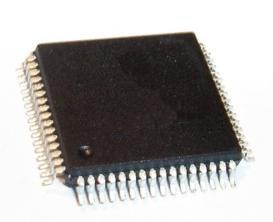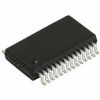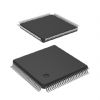CY7C4271V: Features: • 3.3V operation for low power consumption and easy integration into low-voltage systems• High-speed, low-power, first-in first-out (FIFO) memories• 16K * 9 (CY7C4261V)&#...
floor Price/Ceiling Price
- Part Number:
- CY7C4271V
- Supply Ability:
- 5000
Price Break
- Qty
- 1~5000
- Unit Price
- Negotiable
- Processing time
- 15 Days
SeekIC Buyer Protection PLUS - newly updated for 2013!
- Escrow Protection.
- Guaranteed refunds.
- Secure payments.
- Learn more >>
Month Sales
268 Transactions
Payment Methods
All payment methods are secure and covered by SeekIC Buyer Protection PLUS.

 CY7C4271V Data Sheet
CY7C4271V Data Sheet








